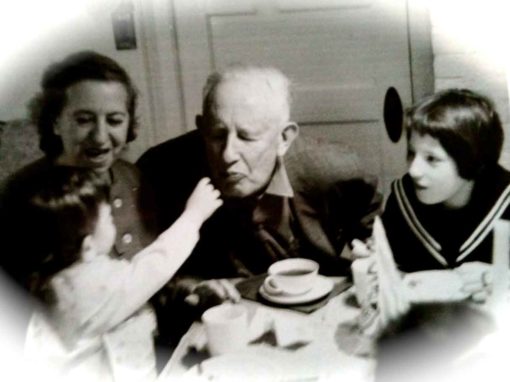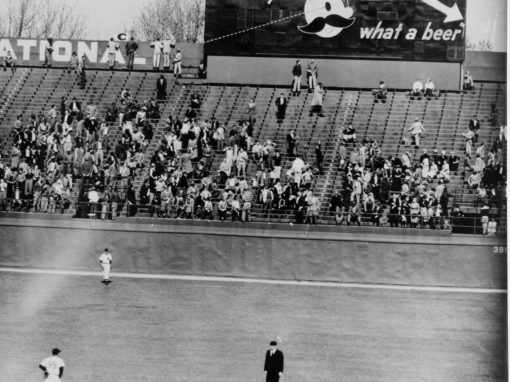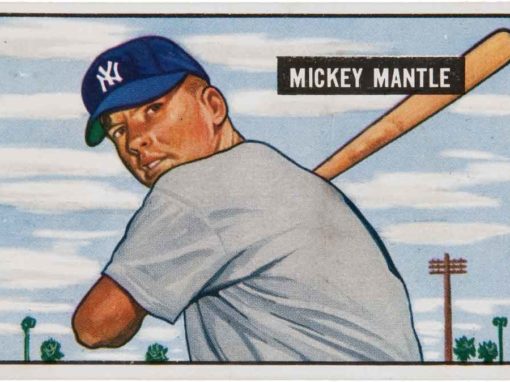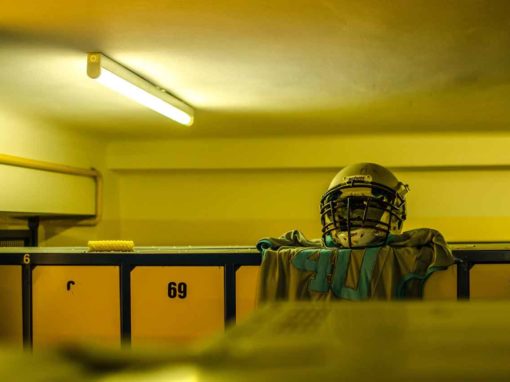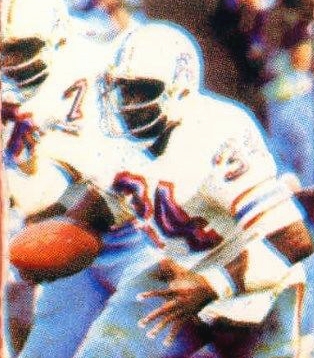The Rookie
The Coming of Age of A Sportswriter of ‘The Other’ Gender
Chicago Tribune |Â August 9, 1992
The first time I went to Yankee Stadium to interview the Bronx Bombers, female sportswriters were not welcome in the locker room. I was bemoaning my fate, and my gender, by the batting cage when the late Red Smith, dean of American sportswriting, offered to help.
“Don’t worry, I’ll do your legwork for you,†he said cheerfully, which was a little like Leonardo da Vinci offering to mix paints for Benjamin Moore. I framed the tattered page of notes he took and hung it on the wall-a tangible reminder that neither gallantry nor sexism in the locker room was dead.
Now 15 years later, the federal courts and the commissioners of every professional league have ruled that female reporters must have equal access to locker rooms. Little was said about the impact of female sportswriters; there now are more than 500 of female sportswriters, according to the Association of Women in Sports Media.
The truth is: In sportswriting gender is a double-edged sword. For every time I had a guy pin me against the outfield fence, there was a time when I was treated with chivalry. I have no doubt that the Washington Post as a sportswriter hired me in 1979 in part because I was a woman. I also have no doubt that I got some stories I wouldn’t otherwise have gotten because people were more comfortable talking to a woman.
I don’t think it undermines a woman’s right to be in the locker room to admit that it is different to be a woman in a man’s world. The biggest difference is that from the moment you cross that threshold to the locker room, you know you are an outsider, which is what a reporter is supposed to be.
You can make the argument that gender may give a female sportswriter more distance, and therefore more perspective on the world of sports. In other words, you’re never tempted to think you are just one of the guys.
I learned this my first month at the Post when I was sent to Houston to interview Oilers running back Earl Campbell. Campbell did not want to be interviewed by me. In fact, he was so determined not to be interviewed by me that he preferred to spend five hours standing in a men’s room rather than come out and face me.
Being a new and conscientious reporter. I was just as determined to talk to him as he was to avoid me. So I stood outside the men’s room for five hours waiting for Campbell to change his mind. It was an insane standoff. I couldn’t leave, and he wouldn’t leave.
At the end of five hours he made a break for it. I introduced myself. Campbell said, “No comment.â€
It was, to say the least, a formative experience in the power and the powerlessness of the press. I had the power to make a grown man stand in a bathroom for five hours. He had the power to keep me out. From that moment on, I knew that my experience as a sportswriter was going to be different from, say, Red Smith’s.
But different does not always mean worse. My first time in the locker room, in the late ’70s, I went to talk to the New York Knicks about how jocks had become more appearance-conscious, getting all pretty and sissified. I was terrified.
After I had spent five minutes standing around hiding behind my notebook, player Phil Jackson, now the coach of the Chicago Bulls, put his arm around me and said, gently, “Is it your first time?â€
Needless to say I was quite taken aback and only in part because he was stark naked. After I admitted it was my first time and explained why I had come, Jackson proceeded to go around the locker room and interview his teammates for me. He handed me my story. Athletes do that sometimes. In this case, I have no doubt that he did it because I was a woman and because he was trying to make me feel comfortable.Â
I don’t think it undermines a woman’s right to be in the locker room to admit that it is different to be a woman in a man’s world. The biggest difference is that from the moment you cross that threshold to the locker room, you know you are an outsider, which is what a reporter is supposed to be.
Go into any baseball locker room in America and you’ll find some radio guy sticking a microphone in some pitcher’s face and saying, “That was your red dot slider, wasn’t it, Big Guy?â€
A female sportswriter is much more likely to ask, “What was the pitch?â€
Athletes tell women different things. Example: I had a female friend who covered hockey for years. One season the star of the team was in a terrible slump. The tabloids were full of headlines about him. Did he need glasses?
Were his legs gone? Was he concealing an injury?
One day the player took my friend aside and told her, off the record, that the problem was that he was infertile. He wouldn’t let her write it. But he didn’t want her writing inaccurate stories either.
I don’t think it’s a coincidence that the reporter he told was a woman. Nor did I think it was a coincidence when Al Bumbry of the Orioles took me aside one day in the dugout at Memorial Stadium and told me about growing up as a child born out of wedlock and being teased about it and developing a speech impediment and how he and his wife just had separated and he was worried about his daughter developing a speech impediment too.
In a way, reporting is a seduction. You use empathy to undress someone.
In 10 years as a sportswriter, I came to wonder whether the resistance to women in the locker room really had to do with nudity. If nakedness per se is the issue, it’s easy enough to put your pants on. If nakedness in the sense of being perceived is the issue, it’s not so easy to cover up.
We live in the era of personality journalism. The ability to undress someone, metaphorically speaking, is a marketable skill. As television has usurped more of the reporter’s task, telling you the score, sports pages have concentrated more on what athletes feel, what their lives are like, what their personalities may be. This is great, except of course when the personality in question doesn’t have one or is smart enough to understand he’s going to sound dumb trying to have one.
Which brings me back to Earl Campbell standing in the bathroom for five hours. My editor had decided Earl was going to be a personality, whether he liked it or not. I didn’t blame Earl for avoiding me. In his position I might have done the same. After all, just because he had great legs didn’t mean he could go one-on-one with me.
Standing in that parking lot outside that men’s room, I recall feeling something for the first time, something I felt over and over during my 10 years at the Post, something you’re not supposed to feel as a reporter. I felt responsible for how he was going to sound. For a reporter, the problem with feeling responsible is that it leads to paralysis.
Some years ago I wrote a piece on the legendary Russian pairs figure skaters, the Protopopovs, who had defected to the West after an illustrious Olympic career. The promoter of the show they were appearing in, wanting to hype the story, told me off the record, which is to say not for attribution, that the KGB was harassing their relatives in the Soviet Union. The Protopopovs had not been able to reach their relatives for weeks. But, the promoter said, being troopers, they were prepared to skate anyway. It was a great story.
When I told the Protopopovs what I had learned, they begged me not to write it for fear it would make the plight of their relatives worse. The managing editor of the Post, the late Howard Simons, told me to go with it. I’ll never forget what he said: “Who are you to play God?â€
I think ultimately that is why I left reporting. Jane the outsider had gotten too good at getting close to people. Rightly or wrongly, I felt like I was playing God every time I had to write what knew. The process of distancing myself from them to fulfill my obligations as a reporter had become wrenching and morally unclear.
So I left the Post in 1988 to write a novel. You can imagine what a relief it was to be able to make up the quotes and not worry about someone saying I had gotten it all wrong, or had taken it out of context.
I worked for two years on the book without hearing any of the voices of the game except those in my head. I wrote all the stories I never could put in the paper and all of my doubts about them too. I didn’t have to worry about being respectful. I could quote people the way they really talk (a value instilled by Red Smith). I could be as irreverent as I pleased.
Undue reverence is a problem for sportswriters, even the best of them. Red used to tell the story about being accused of going to spring training and frolicking in the sun and “godding up“ all the ballplayers. Partly that is a function of proximity, just hanging around. Partly it is a function of writing nonfiction; facts and libel laws behoove you to be careful and respectful, especially in a family newspaper. And partly it is a function of male bonding. Most sportswriters grow up speaking the language of the locker room and use the jargon as a way of fitting in, a way of showing they know their stuff. As a woman writing a sports novel, I had the advantage of being removed from all these conventions and inhibitions. I came to feel I could tell more of the truth in a novel than I ever could as a reporter.
But then a funny thing happened just as I was finishing the manuscript. I began to have anxiety attacks. In my distance from the game, I had found perspective but now also self-doubt. I began to ask myself, “What if I made it all up?â€
I kept telling myself this was fiction, that I was supposed to make it all up. But being rational didn’t help. Finally, I did the only thing I could think of: I decided to go back to baseball. I needed to hear the voices of the game to make sure the fiction was real.
It sounds pretty silly, I know. But I was scared to go to spring training. I was so scared, in fact, that I arranged to have my friend, columnist Dave Kindred, meet me at the stadium. I was not about to confront this sudden fear of double-knits alone. Of course, he stiffed me.
So there I was, 15 years after my rookie season, an outsider again, trying to summon the courage to step back into that world and find out if my whacky, whimsical and somewhat outrageous fictional version bore any similarity to the original.
I was standing by the third baseline. Batting practice was over. Rookies were trotting by, spitting sunflower seeds and worse at my feet. Across the field, I saw Baseball Hall of Famer Luke Appling sitting on a bat signing autographs and chatting up the fans.
I walked over and put my foot up on the bench. Sportswriters always put their feet up when they talk to athletes. I don’t know why. Anyway, I couldn’t help but notice Luke staring at my pasty white Northern shins-he was staring at them hard. Finally, I said the first thing that came into my head.
“Like that pasty white skin, huh, Luke?â€
Luke Appling, all 80 years of him, winked flirtatiously and said, “I always liked white skin.â€
That’s when I knew the book was done. Luke may not have been one of the fictional guys, but he could have been. I flew home again the next morning feeling real again.
More Essays
